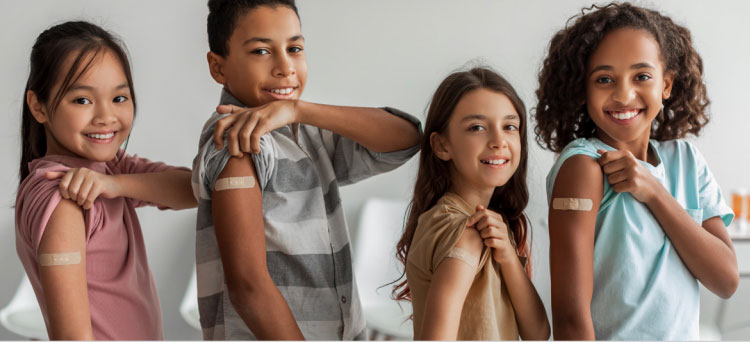What is Human Papillomavirus (HPV)?
Human papillomavirus (HPV) is a virus that is spread by skin-to-skin contact, including sexual contact. HPV infections are very common, with nearly everyone contracting HPV at some point in their lives.
Most people who are infected with HPV have no signs or symptoms, and in most cases never develop any problems caused by HPV. People with HPV infection usually do not know they have it. This is one reason why HPV spreads so easily.
There is no treatment for HPV infection, fortunately in most cases the immune system clears HPV from the body, however in some patients HPV infection does not go away, it’s called “persistent infection”. Persistent infection with some types of HPV (“high-risk” HPV) can cause abnormal cells to develop, which can go on to become cancer.
Persistent infection of the cervix (the lower part of the uterus) with high-risk HPV is the cause of 95% of cervical cancers. It usually takes 20 to 25 years for a HPV infection to cause cervical cancer. Other types of cancers, including cancers of the anus, penis, vagina, vulva and back of the throat (oropharyngeal), have also been linked to HPV infection. Most cases of HPV-related cancer are caused by just two high-risk types of HPV: type 16 and type 18.
Some HPV types are called “low-risk”. They are considered low-risk because they do not cause cancers. However, they can cause problems such as genital warts, or warts and verrucas on the hands and feet.

The HPV vaccine protects you from being infected by HPV
The HPV vaccine used at FV Hospital is called Gardasil ® 9. It is the most effective of all HPV vaccines and the only one now distributed in the United States, it protects against the most common high-risk and low-risk HPV types (strains 6, 11, 16, 18, 31, 33, 45, 52, and 58).
Gardasil ® 9 is a safe and effective way to protect yourself against HPV-related diseases. It can reduce the risk of HPV-related genital warts and cancer by up to 99% when all recommended shots have been given. It is one of the most effective vaccines you can get.
Vaccination works best when it is done before a person is sexually active and exposed to HPV. But vaccination can still reduce the risk of getting HPV for people who have already been sexually active.
Who should be vaccinated and how is the HPV vaccine given?
The ideal age for HPV vaccination of girls and boys is 11 or 12, but anyone can get it starting at age 9 and through age 26.
The HPV vaccine is given as a series of shots:
- For those age 9 to 14, two shots of vaccine are recommended. The second shot should be given 6 to 12 months after the first one.
- For those age 15 through 26, three shots of vaccine are recommended. The second shot should be given 1 to 2 months after the first one. The third shot should be given 6 months after the first shot.
What if I am older than 26 and want the HPV vaccine?
If you are older than 26, have not been vaccinated, you and your doctor can talk about whether you need the HPV vaccine. The vaccine is approved for people through age 45. The three-dose schedule is also recommended for anyone age 27 through 45 who decides to start the vaccine series after talking with their doctor.
What are the side-effects of the HPV vaccine?
The most common side effect of the HPV vaccine is soreness and redness where the shot is given. There have been no reports of severe side effects or bad reactions to the vaccine
HPV vaccination at FV Hospital
- Two-doses package for individuals aged 9-14: VND 8,660,000
- Three-doses package for individuals aged 15-45: VND 12,990,000
10% discount applies to those who have FV membership
Book an appointment for HPV vaccination
At FV Hospital
- For children under 15 years old:
- Paediatrics Department, 1st Floor, V Building, FV Hospital
- For Adult:
- General Practice & Family Medicine Department, G Floor, F Building, FV Hospital
- By phone: (028) 54 11 33 33 or through our website www.fvhospital.com
The essentials
What is the HPV virus?
- Human papilloma virus is also known as HPV. HPV is a common virus lots of people get
- There is a vaccine that young people can get to help stop them getting HPV
- There are different types of HPV infections that can cause different symptoms like warts on your genitals or cancer
- Some types of HPV do not cause any symptoms and it can go away by itself but sometimes it doesn’t
- A lot of people that have not had the vaccine will get HPV so it is very important to have it
- Having HPV means you are more likely to get some types of cancers
- Cervical cancer (this is a cancer in the lower part of the womb)
- Some mouth and throat cancers
- Some cancers in the bum and genital areas
- The HPV vaccine helps to stop you getting the HPV virus
HPV and how it spreads
- HPV infection is very common. More than 70% of unvaccinated people will get it
- HPV lives on the skin in and around the whole genital area, so using condoms does not provide complete protection from HPV
- There are many different types of HPV
- Most HPV infections do not cause any symptoms and get better on their own
- Some do not clear up and can lead to cancer whilst others cause genital warts

 Vi
Vi 












